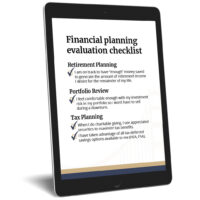
Suffering from Peak Busyness? It may be time for a new plan
Do you self-diagnose as having “Peak Busyness?” A common condition among successful business owners and leaders, this midlife ailment can sneak up on you and cause havoc. While not an actual medical syndrome (yet!), its symptoms may keep you from enjoying the life you have built, so it might be helpful to take a closer look.
What is Peak Busyness?
[ peek biz-ee-nis ] noun The point in a person’s life when the state of balancing all of life’s priorities hits its maximum level.
Symptoms1of Peak Busyness
- Having a hard time taking foot off the work gas pedal – wondering what will happen if you slow down
- Checking things off your endless To-Do list but not making time for longer-term planning
- Longing for a real break; a summer like your kids have (even in quarantine).
- Daydreaming about a 1-2 month sabbatical or mid-life gap year, without worrying about returning to a mountain of emails and fires to put out.
- Wondering what your non-financial and financial legacy will be, in your family and community, and if you are doing enough to make that happen
Cause of Peak Busyness
Life stage. This time of life, generally from ages 40 – 55, is crammed with many of the positive and not-so-positive things that go into a full life. It may be the culmination of accomplishment, caring for family, health and general intellectual curiosity.
You started many life endeavors 10-20 years ago and all are converging now – many quite successfully. Endeavors may include focus on family, career, business(es), personal health, friends, parents, community, finances, spirituality and everything else that matters to you.2 For some, busyness had been a sign of their success and even importance. But, there are times when it seems unmanageable and overwhelming.
Treatment Plan
- Take a critical look at your calendar; this is often a key source of anxiety. Make it a priority to clear items that are not critical to near-term goals. Start to say no to things that can be delegated.
- Schedule time with those close to you to discuss making longer-term changes. You may have to make trade-offs, but you can start with a list of key life and work questions to ponder.
- Identify and develop new habits and perspectives to best serve your goals. There are many resources to help with this including books and online tools.
- Articulate and plan out your life goals and the finances required to make them a reality.
Enjoy your new trajectory with confidence, less stress and a rejuvenated sense of excitement.
If you want to find calm amidst peak busyness, starting with financial clarity, let’s get acquainted.
1. We are not medical professionals, so if you are experiencing physical or mental symptoms from stress and overwhelm, please seek medical advice.↩
2. Tell your financial advisor if you experience any of these symptoms: Immediate family – partner or spouse, kids, and pets: parenting and grappling with all of it: bonding with children individually, spending time together, club sports’ expense and travel demands, musical instruments, electronic device and content management, driver training , school applications, summer jobs, test prep – or not for UC system, tutors, specialists, college visits, and more. Partner/spouse: finding quality time with spouse, planning vacations, coordinating schedules, shuttling kids, keeping your connection. Business: one or more businesses, growing in complexity and time demands, possibly in transition from one stage to the next. Career: High income, but a disappointing high proportion used to cover high cost of real estate, not to mention taxes. Health: trying to maintain the basics, or excel at a hobby toward healthy aging and warding off midlife crisis, possibly by dedicating time to hiking, running, biking or triathlons. Realizing that nutrition quality, sleep and other behaviors affect current and future quality of life. Audiologist confirming that mis-hearing or misunderstanding your spouse or kids is not a physiological problem with your ears, even though your spouse thinks it must be. Financial health: have accumulated retirement and other assets through dedicated savings, a few strategic decisions, and maybe liquidity events but haven’t done financial planning to see what it means in terms of possibilities As a result, you may be over-working and over-stressing relative to goals and feel constant stress to “do more.” Extended family: Feeling the pressure of the sandwich generation. Raising kids while helping aging parents, some of whom have or are developing significant health issues. If they don’t live nearby, problems can feel magnified. Friends / Relationships: insufficient time with friends, trying to stay connected. Spirituality: finding time to prioritize gratitude, giving back, connection, mindfulness and religious beliefs. Community impact: volunteering for one or more causes, with all the free time you [don’t] have.↩
The information provided herein is for informative and educational purposes only. The use of hyperlinks to third party websites is not an endorsement of the third party. Third party content has not been independently verified. To understand how this content may apply to you, please contact a financial advisor.








